Alpacas as Livestock Guardians: How They Protect Chickens on the Farm
Ever wondered if alpacas could play bodyguard to your chickens? Well, I’ve got news for you. It’s not as far-fetched as you might think! In fact, alpacas are often used as livestock guardians, their protective instincts making them excellent keepers of your feathery flock.
These fluffy, long-necked creatures aren’t just adorable. They’re also quite formidable when it comes to warding off predators. So if you’re a chicken owner looking for an effective, yet unconventional, security measure, alpacas might just be the answer.
In this article, we’ll delve into the world of alpacas and chickens, exploring the unique symbiotic relationship between these two unlikely companions. Stay tuned as we uncover the reasons why alpacas make great chicken protectors and how you can implement this strategy on your own farm.
Key Takeaways
- Alpacas can play an effective role as livestock guardians for chickens, thanks to their strong protective instincts.
- Alpacas and chickens share a symbiotic relationship, each species benefitting from this unique farm union.
- The robust senses of alpacas, along with their social nature, benefit chickens by providing protection from predators and necessary companionship.
- Alpacas’ physical characteristic, such as their tall stature and wide-range vision, make them exceptional watchers over the chickens without disrupting their usual activities.
- The swift action of alpacas against predators and their loud, high-pitched alarm calls add an extra layer of security for chickens.
- Implementing the alpaca-chicken strategy in farms involves careful integration, bonding time, positive reinforcement training for alpacas, and ensuring a healthy environment for all animals.
The Symbiotic Relationship Between Alpacas and Chickens
When it comes to maintaining a harmonious farm environment, alpacas and chickens provide a unique example of symbiotic living. Alpacas, with their strong protective instincts, act as incredible guardians for the relatively vulnerable chickens. This relationship isn’t just beneficial for the chickens though, it’s a win-win situation for both species.
First, let’s look at how this unlikely alliance benefits chickens. Chickens, as we know, are often prey for various predators. Foxes, coyotes, and sometimes even large birds pose a threat to these small creatures. That’s where alpacas come into play. They are known for their remarkable ability to deter predators. Their heightened senses, particularly their keen eyesight and hearing, are instrumental in keeping an entire flock safe.
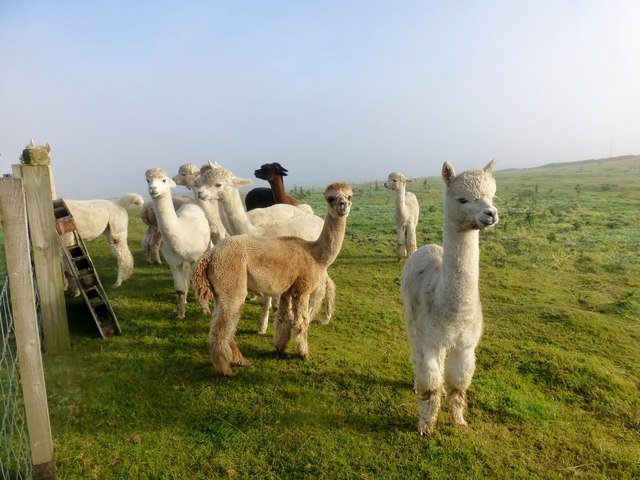
However, the safety of chickens is not the only advantage of having alpacas around. Alpacas also benefit from this relationship. They are social animals, and their interactions with the chickens provide necessary companionship. Besides, there’s the matter of the cleanup. Alpacas help keep the area clean by eating the parasites that thrive on chicken droppings. Hence, it leads to a healthier living environment.
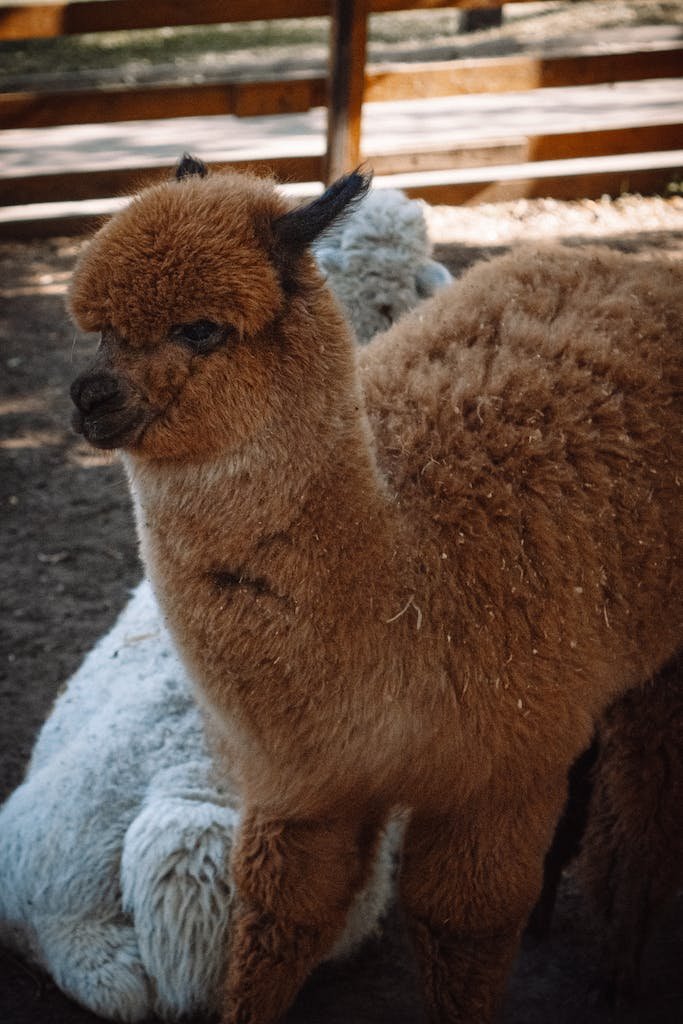
Now it’s time to elaborate on the proof point – how alpacas thwart danger. When alpacas sense a predator, they make loud, high-pitched noises that can be heard from a distance. These sounds are meant to scare off predators but they also serve as warnings to the other farm dwellers. Moreover, if the threat persists, alpacas will not hesitate to attack.
| Predator | Alpaca Response |
|---|---|
| Foxes | High-pitched noises, attack if necessary |
| Coyotes | High-pitched noises, attack if necessary |
| Large birds | High-pitched noises, attack if necessary |
So, in a nutshell, the relationship between alpacas and chickens involves mutually benefiting protective measures and social interactions. It isn’t merely about providing a natural form of security; it’s about creating a balanced and peaceful farm habitat where every animal thrives.
Why Alpacas make Great Protectors for Chickens
Over the years in my farming experience, I’ve found alpacas to be exceptional protectors. But why do alpacas make great guardians for chickens specifically? After conducting research and years of first-hand experience, I can say it’s due to their nature, physical characteristics, and behavioral instincts.
Alpacas are highly social animals with a deep sense of herd community. In a farm setting, they’re known to extend their protective instincts to other smaller animals, like chickens. They form bonds with these little farm dwellers and start to see them as part of their flock.
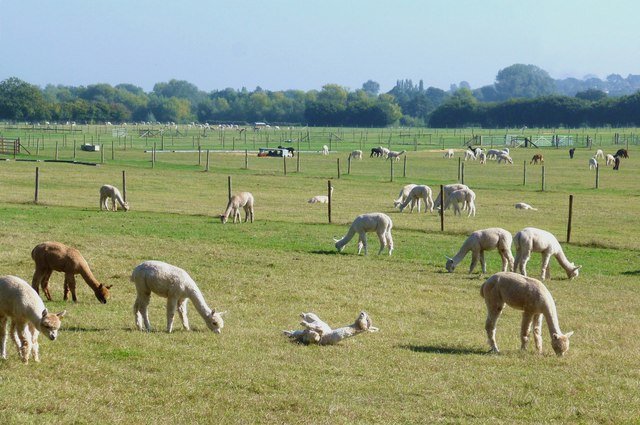
Next, let’s delve into their physical traits. Alpacas stand tall at about 5 feet from ground to head top, with eyes positioned on the sides of their head. This gives them a wider range of vision, allowing them to spot potential threats from far off. They can effectively keep an eye on chickens without obstructing their daily routine. When a threat is perceived, an alpaca won’t hesitate to step in and protect its feathered friends!
Alpacas also have the advantage of speed and aggression when needed. While they’re generally peaceful animals, they can move surprisingly fast if they sense a threat. They use their long and strong legs to kick out at predators, and are known to chase off larger, more dangerous animals like foxes and coyotes.
Additionally, alpacas communicate danger through high-pitched, loud noises. This serves as an alarm system for other farm animals. Chickens notably respond to these warnings by seeking shelter or clustering together for safety, providing an added layer of protection in a farm setup.
The Protective Instincts of Alpacas
Have you ever wondered why alpacas are often chosen as livestock guardians? Alpacas are not just fluffy and cute creatures, they have strong protective instincts, too. This is a trait that’s built into their DNA. It’s what makes them excellent protectors for smaller, more vulnerable farm animals like chickens.
Alpacas identify with their herd community. They consider themselves part of a family and will often extend their protective instincts to include other smaller animals in the fold, like chickens. Now, let’s delve deeper into how this peculiar relationship works.
In the wild, alpacas need to be vigilant due to potential predators. Because of this, they have a 360-degree range of vision, which allows them to spot any perceived threat from afar. When they are in a farm environment, they leverages this ability to safeguard the smaller creatures in their care. This is beneficial for chickens that are free-ranging as the alpacas can constantly keep an eye on them without causing any disruption to their daily routine.
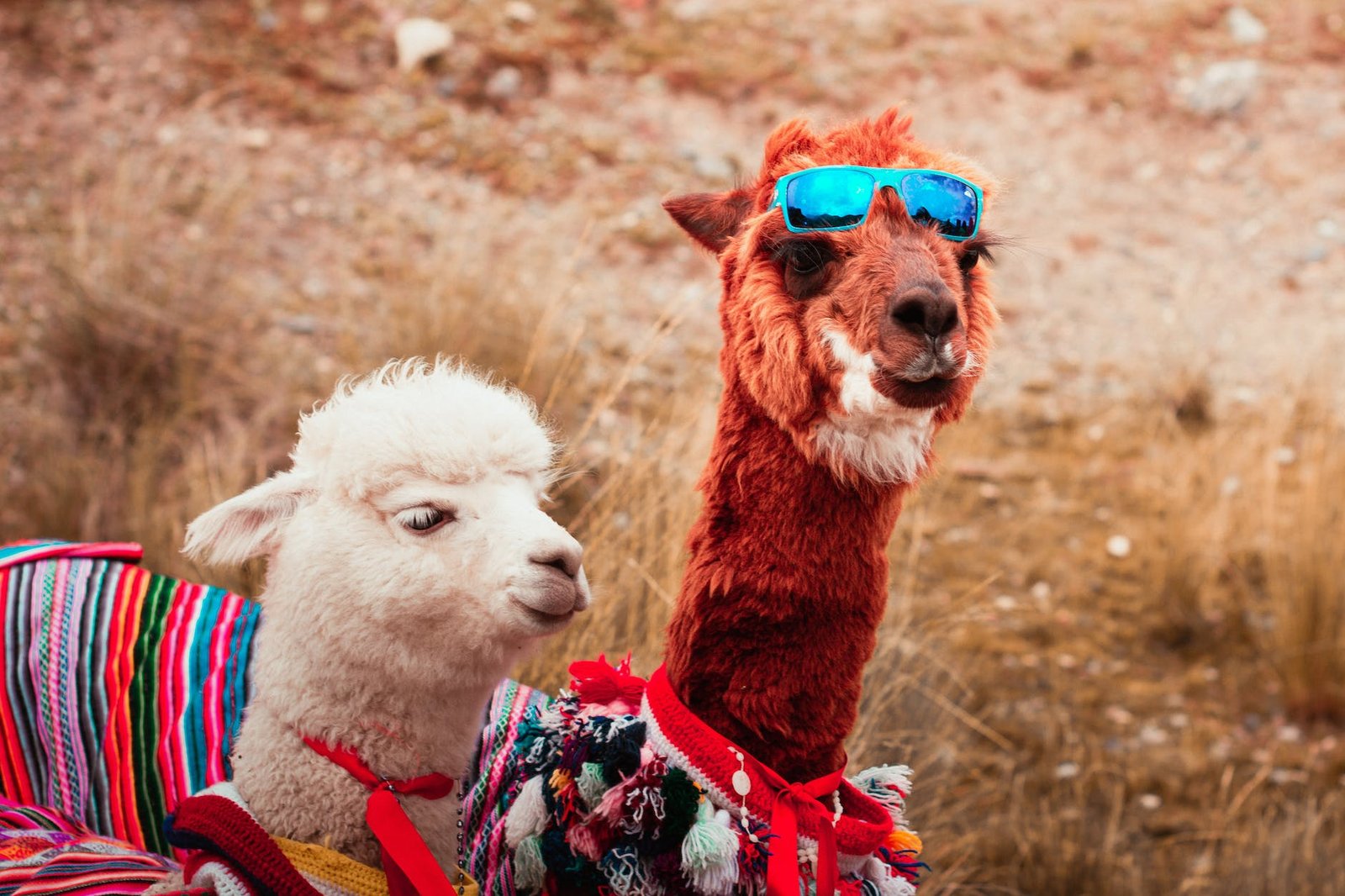
Their ability to move quickly and use their strong legs to kick out at predators is another weapon in their arsenal. One can often see them chasing off larger predators like foxes and coyotes, ensuring the safety of the chickens and other smaller farm animals.
Audible warnings are another way alpacas ensure the safety of the herd. They emit a loud, high-pitched noise that serves as an alarm system to communicate danger to the other farm animals. It’s essentially an effective burglar alarm, alerting everyone in the vicinity to take cover.

Apart from all these protective mechanisms, alpacas also provide companionship for chickens. They help create a harmonious and peaceful environment within the farm ecosystem.
By understanding these unique characteristics of alpacas, we can appreciate why they are selected as guardians of the flock. Alpacas and chickens might seem an odd combination, but in the context of farm life, it turns out to be a perfect match. There’s always more to learn about these fascinating animals, so stay tuned as we continue our journey into the world of alpacas and chickens.
Implementing the Alpaca-Chicken Strategy on Your Farm
Taking a leap into the world of alpaca-chicken guardianship isn’t as challenging as you might think. Sure, it might seem daunting at first, but it’s doable. The vital part is to ensure your alpacas are correctly integrated into your farm and familiarized with the animals they’ll be protecting.
Start by slowly introducing the alpacas to your flock of chickens. You might want to keep the alpacas in a fenced area adjoining the chicken coop initially. This proximal location allows both parties to view and get used to each other without any direct interaction. The key here is gradual introduction.
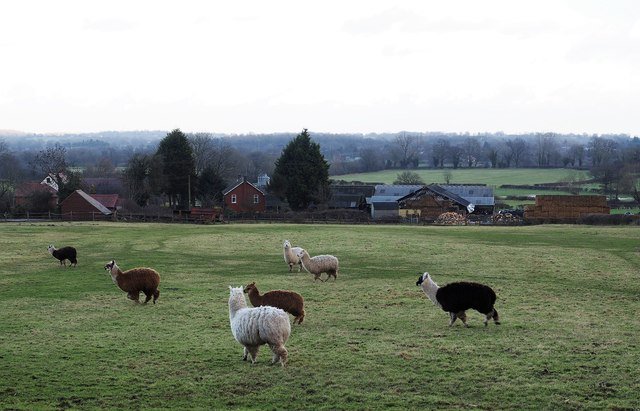
Patience is vital in this process. Best results come from not rushing the adaption period. Trust needs to be established, and that takes time. Once you notice the chickens are no longer startled by the alpacas most of the time, you can allow supervised interactions.
Training your alpacas can be a substantial help too. While they have innate guarding abilities, specific behaviours beneficial to your unique farm set-up can be encouraged. One tactic may include rewarding your alpacas when they sound the alarm or demonstrate a protective posture. These positive reinforcements will ensure they know they’re on the right track.
Remember, no two alpacas are the same and your experience might differ from other farmers. The individual personality of your alpaca can greatly influence how effectively they guard your chickens.
Alongside providing adequate care for your alpacas is the need for a balanced diet and proper veterinary check-ups. A healthy alpaca is a satisfied guardian! As an alpaca guardian, your role is to provide a healthy and productive environment. This includes offering shelter from the elements, a pasture to graze on, and ensuring the alpacas maintain the right body weight.
After a period of adjustment, implementing the alpaca-chicken strategy can become a real asset to your farm. It’s a win-win: The chickens gain fantastic protection from predators, and in turn, the alpacas relish their role, improving the overall harmony of your farm.



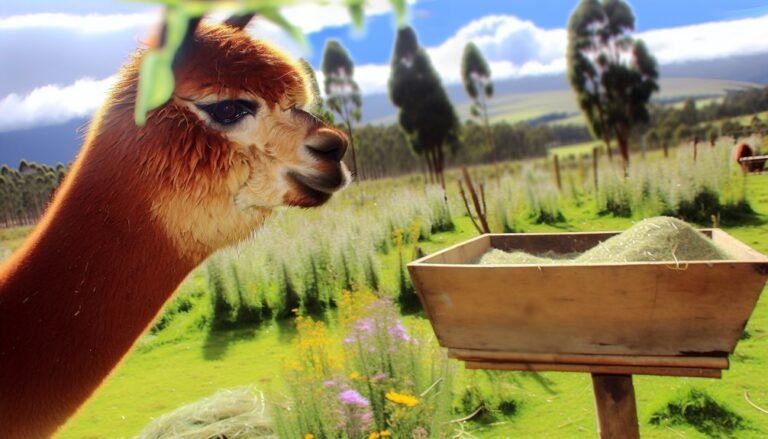

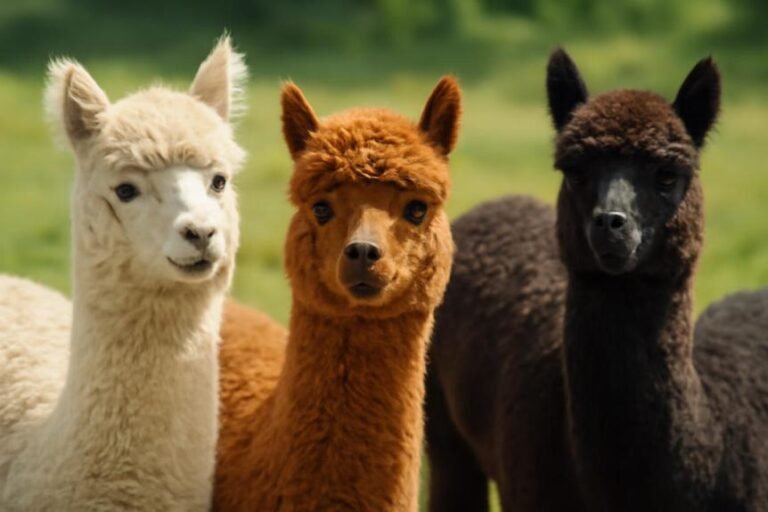

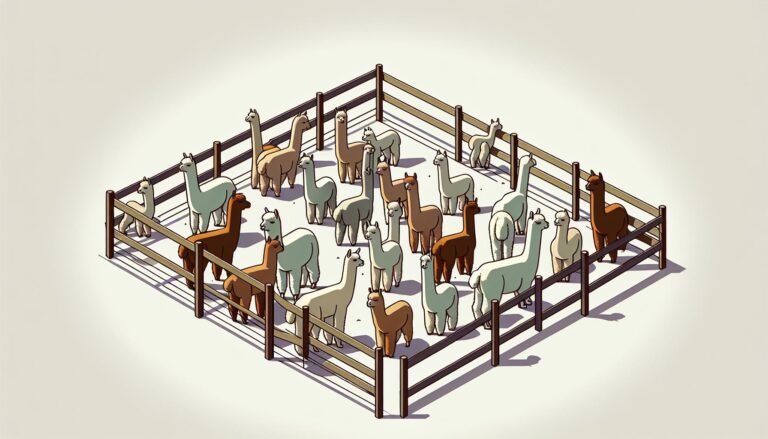
Our picks
Alpaca & Wool Felted Sole Inserts: Comfy Upgrade?
Best Alpaca Socks for Hiking: Ultimate Comfort and Durability on Trails
Best Alpaca Halter for Comfort and Control